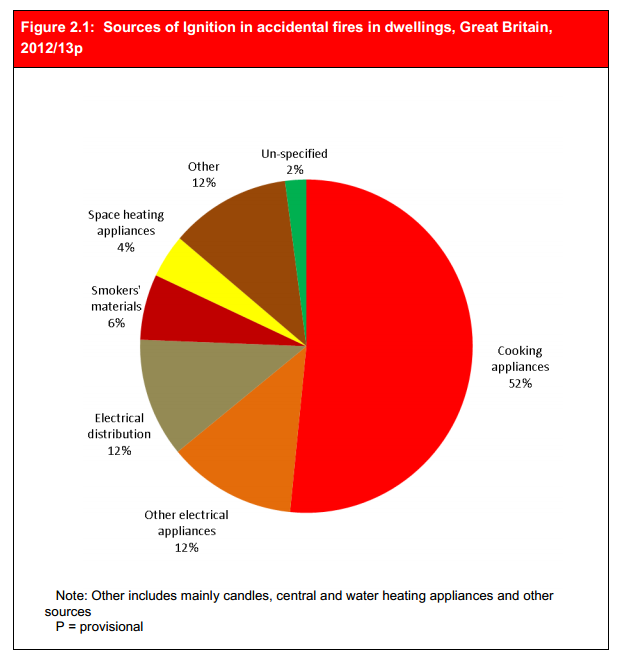More people are becoming aware of fire safety in their homes as well as in the workplace and taking the proper precautions to prevent fire related accidents. Due to this, UK fire statistics continue to improve year by year.
However, there are still many fatalities every year caused by fires – most of these occurring in the home rather than the workplace.
Smoke alarms are incredibly important in the home and are convenient to install and test. This small change could make a huge difference in the case of a house fire. The 2012 – 2013 statistics from gov.uk show that it is the homes without smoke alarms that have the highest amount of fire related fatalities.
Smoke alarm ownership has increased rapidly since the 1980s.
1988 – 8% of homes
1994 – 70% of homes
2011 – 88% of homes
No smoke alarm was present in 12,800 (31%) of dwelling fires in 2012 – 2013. A smoke alarm was present but not operating in an additional 19% of dwelling fires. This amounts to half of dwelling fires in 2012 – 2013 occurring in homes without a working smoke alarm.
Nearly a third of dwelling fire deaths occurred in homes without a smoke alarm installed.

41,000 dwelling fires were attended in 2012 – 2013, 89% of these were accidental. Accidental fires are down 4% compared to 2011 – 2012 and down 22% compared to 2002 – 2003, showing a greater understanding of fire safety in the home. The main causes of these fires are misuse of equipment/appliances – cooking appliances were the cause of more than half of all dwelling fires in 2012 – 2013.

22,500 fires were recorded in buildings that were not residential. This is 18% less than 2011 – 2012 and 41% less than 2002 – 2003.
Commercial buildings must comply with the Regulatory Reform Order 2005, listing the fire alarm requirements. Businesses not abiding by these regulations could face legal action. The full legislation can be found online.
Despite these requirements, 65% of fire related deaths in non-residential buildings in 2012 – 2013 were in a property without a smoke alarm.

Not only should commercial properties have a working smoke alarm, they must also have carried out a thorough fire risk assessment and complied with the legal requirements for their specific business. Keybury take over many existing fire alarm systems, usually a requirement of the insurer, and find many areas of non-compliance.
Typically 85% of systems, fitted by non-approved installers, which we inspect fail to meet the standards.
If you are unsure if your business is meeting the required standards, give our fire division a call or contact us here through our website.
